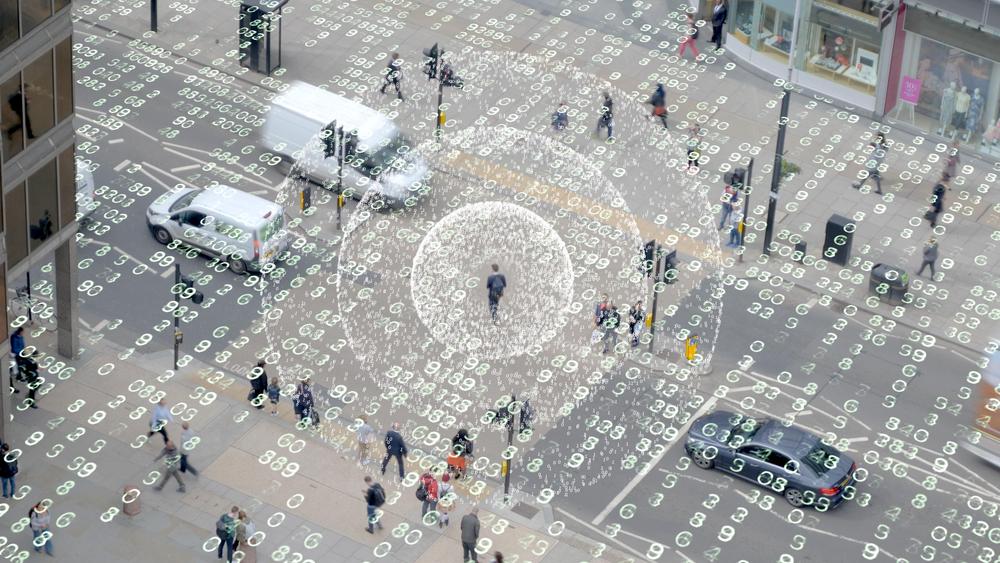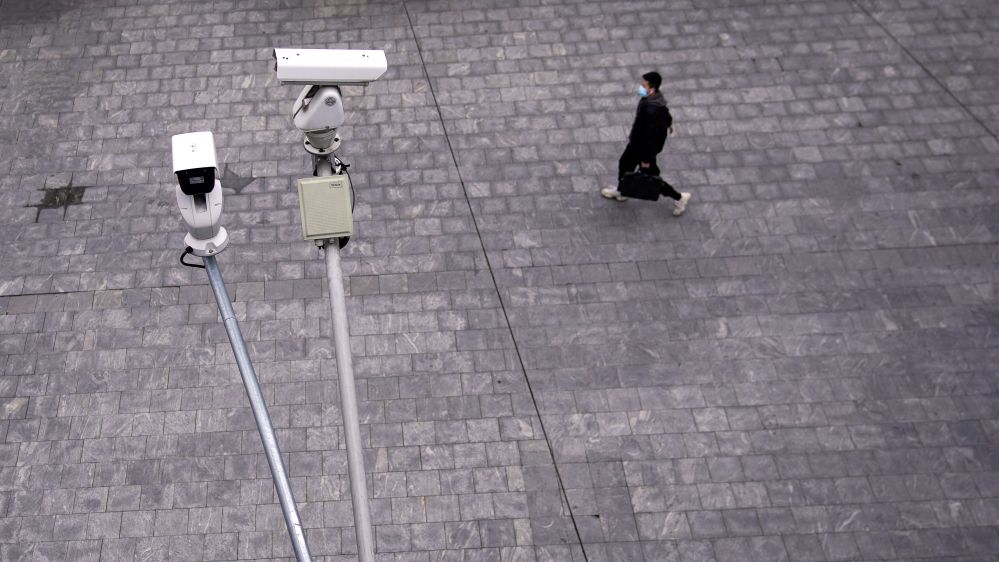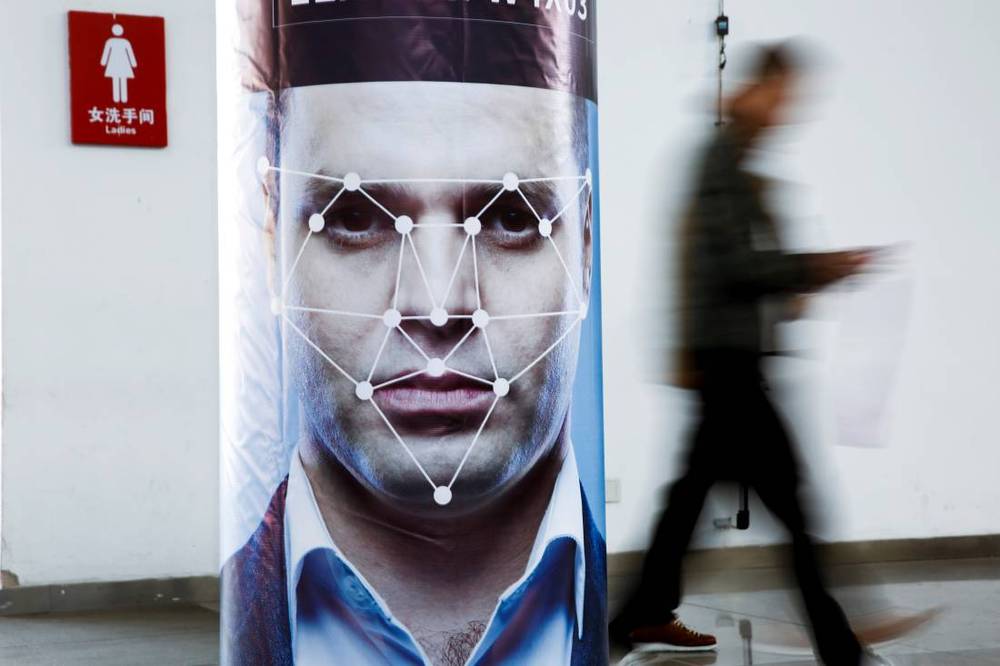Here’s the surveillance reality in a time of real crisis—ultimately, you do whatever it takes.


Love this convergence of metaverse and fighting censorship with style. Wonder when Microsoft will start getting pressure about this or other kinds of content.
Most of us live in countries where freedom of speech is considered a fundamental human right and it would be hard to imagine living in a different state than that. However, not all of us are blessed with this sometimes overlooked right as there are a number of countries in this world where governments actively censor their citizens, especially those whose profession is to report facts. Journalists.
In a number of places around the world, journalists are banned, jailed, exiled, and even killed for their words. In order to make their message heard and reach the places where they’re banned, Reporters Without Borders (RSF) opened a special type of library that could reach millions. They built it in Minecraft.
The creators reason their choice by explaining the library’s accessibility: ” Reporters Without Borders (RSF) used this backdoor to build ” The Uncensored Library”: a library that is now accessible on an open server for Minecraft players around the globe. The library is filled with books containing articles that were censored in their country of origin. These articles are now available again within Minecraft—hidden from government surveillance technology inside a computer game. The books can be read by everyone on the server, but their content cannot be changed. The library is growing, with more and more books being added to overcome censorship.”

According to SOPS, this was one of the most significant upgrades to the system since it became operational in 2015. The ground system upgrade will also be important as the Space Force expands the constellation later this year, said 1st SOPS engineer Capt. Zachary Funke.
The first two satellites in the constellation launched in 2014, with two more satellites joining them on orbit in 2016. The Space Force is slated to launch the fifth and sixth GSSAP satellites in the fourth quarter of 2020 aboard an Atlas V rocket.
Operating near the geosynchronous belt, the four GSSAP satellites can provide data on other man-made objects in space without being interrupted by the weather or atmospheric conditions that impact ground-based space situational awareness systems. GSSAP satellites can also perform rendezvous and proximity operations, approaching other space vehicles to provide attribution or enhanced surveillance on objects of interest to United States Space Command.

Electromagnetic radiation, radar, and surveillance technology are used to transfer sounds and thoughts into people’s brain. UN started their investigation after receiving thousands of testimonies from so-called “targeted individuals” (TIs).”
Magnus Olsson, Geneva 8 March 2020
UN Human Rights Council (HRC) Special Rapporteur on torture revealed during the 43rd HRC that Cyber technology is not only used for internet and 5G. It is also used to target individuals remotely – through intimidation, harassment and public shaming.
On the 28th of February in Geneva, Professor Nils Melzer, UN Special Rapporteur on Torture and other Cruel Inhuman Degrading Treatment and Punishment, has officially confirmed that cyber torture exists and investigation is now underway on how to tackle it legally.
AI/Humans, our brave now world, happening now.
Are we facing a golden digital age or will robots soon run the world? We need to establish ethical standards in dealing with artificial intelligence — and to answer the question: What still makes us as human beings unique?
Mankind is still decades away from self-learning machines that are as intelligent as humans. But already today, chatbots, robots, digital assistants and other artificially intelligent entities exist that can emulate certain human abilities. Scientists and AI experts agree that we are in a race against time: we need to establish ethical guidelines before technology catches up with us. While AI Professor Jürgen Schmidhuber predicts artificial intelligence will be able to control robotic factories in space, the Swedish-American physicist Max Tegmark warns against a totalitarian AI surveillance state, and the philosopher Thomas Metzinger predicts a deadly AI arms race. But Metzinger also believes that Europe in particular can play a pioneering role on the threshold of this new era: creating a binding international code of ethics.
——————————————————————-
DW Documentary gives you knowledge beyond the headlines. Watch high-class documentaries from German broadcasters and international production companies. Meet intriguing people, travel to distant lands, get a look behind the complexities of daily life and build a deeper understanding of current affairs and global events. Subscribe and explore the world around you with DW Documentary.

WASHINGTON — L3Harris has been awarded a 10-year $1.2 billion contract by the U.S. Space Force’s Space and Missile Systems Center to maintain and modernize the military’s network of space surveillance sensors.
The award is for a new program named MOSSAIC, short for maintenance of space situational awareness integrated capabilities. The selection of L3Harris was announced Feb. 25 on the beta. SAM.gov federal contracting opportunities website.
MOSSAIC replaces a previous contract that Harris (before it merged with L3) had held since 2002 to maintain the Air Force’s network of telescopes — known as the Ground-based Electro-Optical Deep Space Surveillance System — that track objects in geostationary orbits. Now under control of the U.S. Space Force are three GEODSS sites — on the island of Diego Garcia in the Indian Ocean; at the White Sands Missile Range, New Mexico; and in Maui, Hawaii.


The rest of the world is interested, too. Africa contains much more genetic diversity than any other continent because humans originated there. This diversity can provide insights into human evolution and common diseases. Yet fewer than 2% of the genomes that have been analysed come from Africans. A dearth of molecular-biology research on the continent also means that people of African descent might not benefit from drugs tailored to unique genetic variations. Infectious-disease surveillance also falls short, meaning that dangerous pathogens could evade detection until an outbreak is too big to contain easily.
Nigeria is poised to become a hub for genetics research, but a few stubborn challenges block the way.

Sobyanin said last month that the city had begun using facial recognition as part of its city security surveillance programme.
Kremlin spokesman Dmitry Peskov said he had not seen details of the actions being taken in Moscow but that measures to curb the spread of the coronavirus should not be discriminatory.
The clamp down on quarantine rules comes after a woman in St. Petersburg staged an elaborate escape from a hospital where she said she was being kept against her will.
Data can be stolen from an air gapped personal computer just by using variations in screen brightness. Researchers at Ben-Gurion University wrote a paper on it.
As the team defines them, “Air-gapped computers are systems that are kept isolated from the Internet since they store or process sensitive information.”
That they have come up with yet another discovery on how to wrest sensitive data from a computer came as no shock to Naked Security, which recognized that “Researchers at Ben-Gurion University of the Negev have made a name for themselves figuring out how to get data out of air-gapped computers. They’ve dreamed up ways to communicate using speakers, blinking LEDs in PCs, infrared lights in surveillance cameras, and even computer fans.”